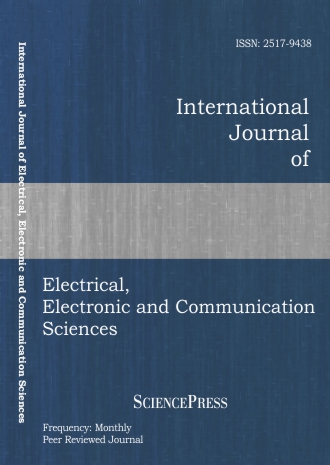
Scholarly
Volume:6, Issue: 6, 2012 Page No: 589 - 594
International Journal of Electrical, Electronic and Communication Sciences
ISSN: 2517-9438
Time-Domain Stator Current Condition Monitoring: Analyzing Point Failures Detection by Kolmogorov-Smirnov (K-S) Test
This paper deals with condition monitoring of electric switch machine for railway points. Point machine, as a complex electro-mechanical device, switch the track between two alternative routes. There has been an increasing interest in railway safety and the optimal management of railway equipments maintenance, e.g. point machine, in order to enhance railway service quality and reduce system failure. This paper explores the development of Kolmogorov- Smirnov (K-S) test to detect some point failures (external to the machine, slide chairs, fixing, stretchers, etc), while the point machine (inside the machine) is in its proper condition. Time-domain stator Current signatures of normal (healthy) and faulty points are taken by 3 Hall Effect sensors and are analyzed by K-S test. The test is simulated by creating three types of such failures, namely putting a hard stone and a soft stone between stock rail and switch blades as obstacles and also slide chairs- friction. The test has been applied for those three faults which the results show that K-S test can effectively be developed for the aim of other point failures detection, which their current signatures deviate parametrically from the healthy current signature. K-S test as an analysis technique, assuming that any defect has a specific probability distribution. Empirical cumulative distribution functions (ECDF) are used to differentiate these probability distributions. This test works based on the null hypothesis that ECDF of target distribution is statistically similar to ECDF of reference distribution. Therefore by comparing a given current signature (as target signal) from unknown switch state to a number of template signatures (as reference signal) from known switch states, it is possible to identify which is the most likely state of the point machine under analysis.